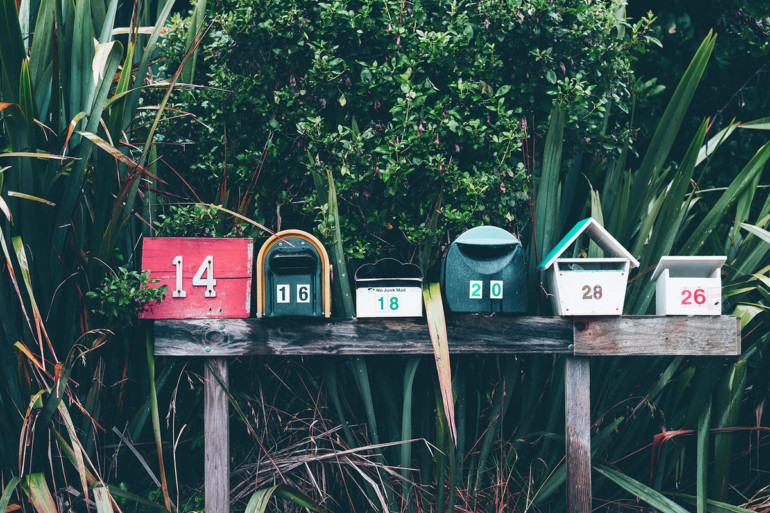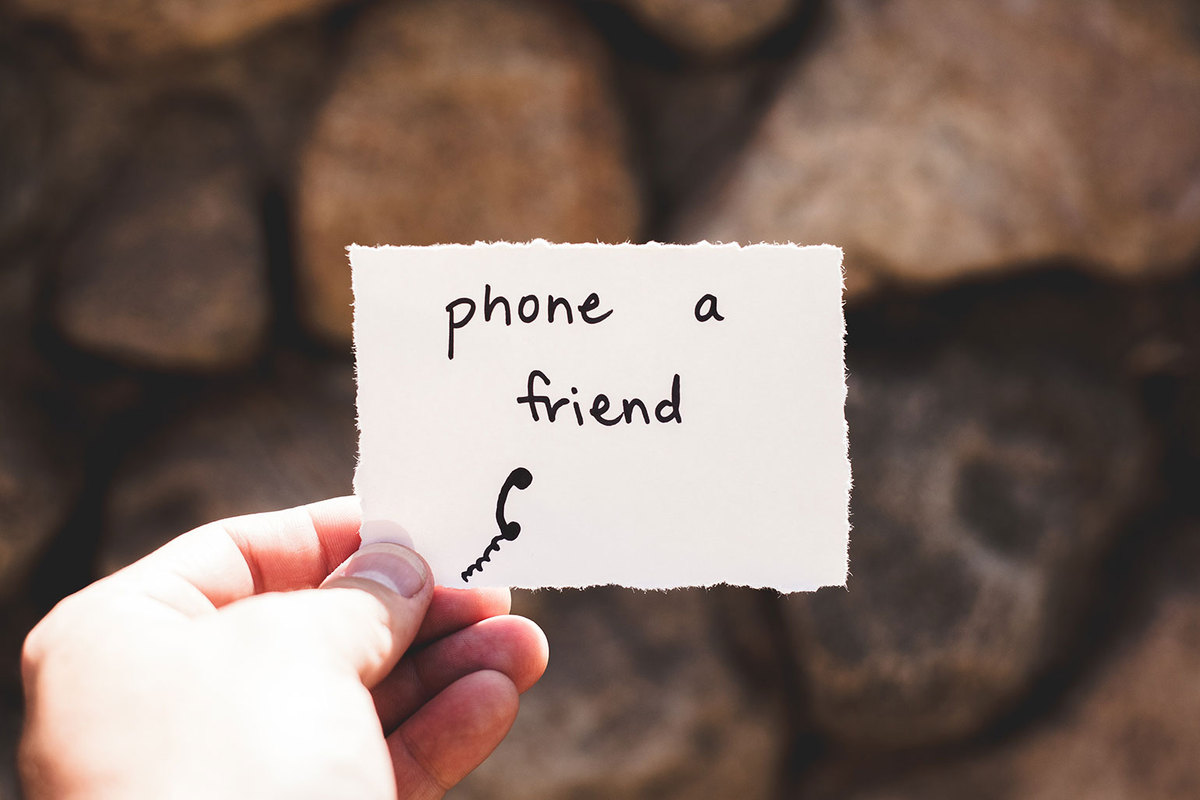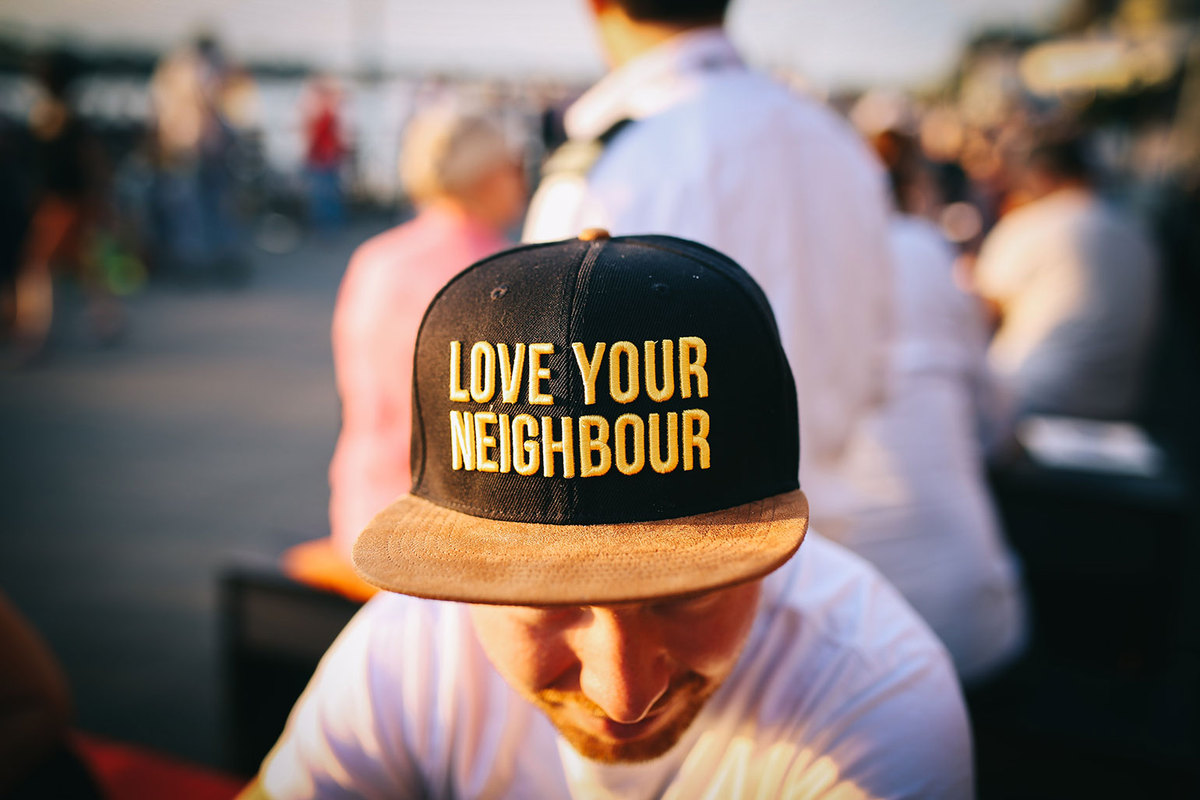For many of us, the initial emotional maelstrom that accompanied a sheltering-in-place life has ebbed somewhat, and we’re starting to think of people beyond ourselves and our loved ones. It’s easy to get overwhelmed with all the asks right now — among others, the restaurant and music industry are suffering, and people are applying for unemployment benefits in droves. But if you’d still like to lend a hand (figuratively speaking, of course) then consider those immediately around you, your neighbors.
Living in a world of GoFundMe and Kickstarter campaigns, it’s easy to confuse “help” with “money.” And in spite of our now-more-than-ever digital existence, we need to remember that we’re all humans, going through many of the same things, including Zoom fatigue and creeping grief. The thing your neighbor might need the most is as simple as a check-in. Give them a call, send an email or tape a note to a window or door asking if they’re OK or need anything. Be considerate of your noise level, practice good hygiene and adhere to social distancing as best you can.
“Our upstairs neighbor is 65+ and healthy, but she worked in the art world and is always very social,” says Larkspur resident Casey Gillespie. “She has been self-quarantining alone for about two weeks so my husband and I have been checking in on her a couple of times a day. We’ll buy extra toilet paper for her if we are out, pick up extra quarters for her so she can do laundry.”
While talk of an economic recession has been in the news since the beginning of the pandemic, articles pointing to a social recession are starting to bubble up. Beyond boredom and frustration of not being able to go to bars and restaurants, researchers say that being socially isolated can negatively affect your health. “There was a study that tracked 7,000 people for 10 years and tried to determine what variables that were present on day one that could predict, in the strongest way, when people would die or fall ill, and smoking was number three, which was a quite surprise,” says Dr. Eric M. Verdin, the President and CEO of the Buck Institute for Research on Aging. “The most important variable was loneliness and the relationship with first degree relatives or friends,” he adds.
Another important factor to a long, healthy life was having a sense of purpose, the feeling of being helpful to your community and being important to someone in the world. “These are interesting because everybody wants a drug. But the results are saying, ‘You don’t need a drug. Go volunteer.’ This would help a lot more than giving you medicine.”
“We have a very active and tight-knit neighborhood, and our highlight this week was the ‘honk and wave’ parade, organized by our local school,” says North Barrington resident Macaire Douglas. “Neighbors set up chairs at the end of their driveway — some decorated with balloons and fanfare — as 100 cars filled with our children’s teachers, friends and classmates rode by. Their cars were decorated as well, and everyone involved was so happy and excited. Who would have thought that a parade of honking cars could be so emotional and uplifting?”
View this post on Instagram
Oftentimes when you’re helping your neighbors, you’re helping yourself too. “Every night around six o’clock we have cocktail hour with Nancy and she sends me a video of her very fancy coupe filled with Champagne bubbling away,” says Gillespie. “She even left a Christmas fruitcake for us on our doorstep and sent a message that she disinfected the plastic and wore gloves. We’re new friends as we’ve only lived here a month, but in these past couple weeks Nancy has become a really good friend, and I can’t wait to resume our cocktail hours with her in person.”
If you suffer from social anxiety and the intimacy of reaching out to the person upstairs is horrifying, don’t beat yourself up over it. We all need to take care of ourselves as best we can, and if you aren’t making masks or posting TikTok dances, you’re not alone.
And, you can still be a good neighbor at a distance. Here are some ways to do so.
Nextdoor
Most people know that the virtual community board that is Nextdoor was set-up with altruistic intentions, but those same people also know that a large portion of posts on Nextdoor tend to be petty gripes — hence the existence of Best of Nextdoor. One of the big upsides of the new coronavirus is the social networking app is operating at its finest, with neighbors posting to check in on each other, offering to shop for the elderly and help in other ways. To facilitate this, Nextdoor has rolled out two new features, Help Maps and Groups, to give people a way to better support one another during the outbreak. Do you feel comfortable going shopping for someone, doing a check-in call or dropping off supplies? Add yourself to the Help Map along with what you’re willing to do. If you are in need, simply view the map to see who is available to assist you.
Donate Personal Protective Equipment (PPE)
There is a shortage of personal protective equipment across the country, and medical professionals on the front lines are putting themselves at risk in efforts to keep us healthy. People like Marin-based designer Lynn Tallerico, who was approved by CPMC to make shields for hospital workers in Marin and San Francisco. Are you one of the people who hoarded N95 masks in the wake of the fires? If you can, consider donating some to these organizations.
Mask-Match.com
Mask-Match is helping match front-line health care workers with free N95 masks that people have in their homes.
UChicago PPE Donations
Please fill out to track items you dropped off at the UCM BSD PPE Donation Center for donation for local Chicago-area hospitals who we anticipate will need supplies in their COVID-19 response. The location is at KCBD, either in room 1220 or at the Loading Dock. The hours are 8 a.m. – 4 p.m. Monday through Friday.
#GetMePPE Chicago
If you have respirators (or other forms of PPE) that you are able to donate, please complete the linked Google Doc. Someone will get in touch with you to organize a pickup — to ensure safety, leave the respirators outside your door at a pre-arranged time.
Brushwood Center at Ryerson Woods: Covid-19 Face Mask Project
As an organization dedicated to wellness, that partners with multiple health care organizations throughout Lake County, the Brushwood Center is mobilizing the community to meet the face mask need. If you have basic sewing knowledge, please join their initiative here. With the help of mask-making kits from Brushwood’s Art Supply Exchange, more than 700 masks have already been distributed to hospitals, clinics, and assisted living centers.
Help Older Adults
Hands on Suburban Chicago
This directory lists senior centers asking for donations or help, including meals and grocery store runs.
Rescue Chicago
If seniors need help caring for their pets, Rescue Chicago offers resources including food and preventative care.
For More on Better:
What Is It Really Like to Have Coronavirus? Patients Share Their Stories
How to Safely Order Takeout Food During the Coronavirus Outbreak
 Kasia Pawlowska loves words. A native of Poland, Kasia moved to the States when she was seven. The San Francisco State University creative writing graduate went on to write for publications like the San Francisco Bay Guardian and KQED Arts among others prior to joining the Marin Magazine staff. Topics Kasia has covered include travel, trends, mushroom hunting, an award-winning series on social media addiction, and loads of other random things. When she’s not busy blogging or researching and writing articles, she’s either at home writing postcards and reading or going to shows. Recently, Kasia has been trying to branch out and diversify, ie: use different emojis. Her quest for the perfect chip is a never-ending endeavor.
Kasia Pawlowska loves words. A native of Poland, Kasia moved to the States when she was seven. The San Francisco State University creative writing graduate went on to write for publications like the San Francisco Bay Guardian and KQED Arts among others prior to joining the Marin Magazine staff. Topics Kasia has covered include travel, trends, mushroom hunting, an award-winning series on social media addiction, and loads of other random things. When she’s not busy blogging or researching and writing articles, she’s either at home writing postcards and reading or going to shows. Recently, Kasia has been trying to branch out and diversify, ie: use different emojis. Her quest for the perfect chip is a never-ending endeavor.



